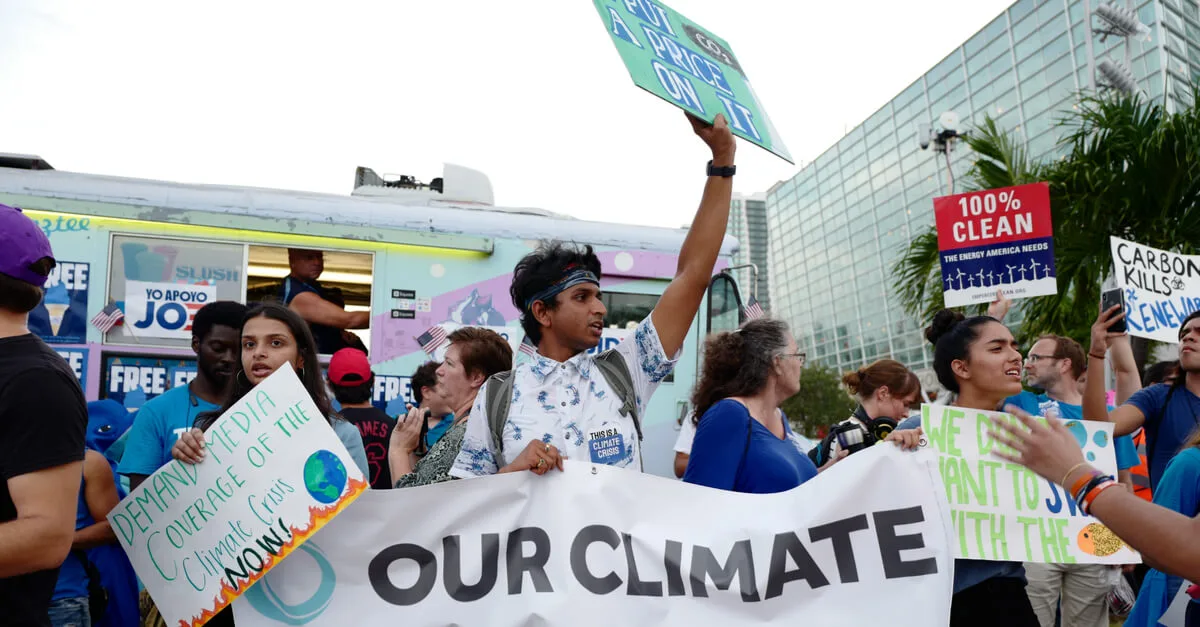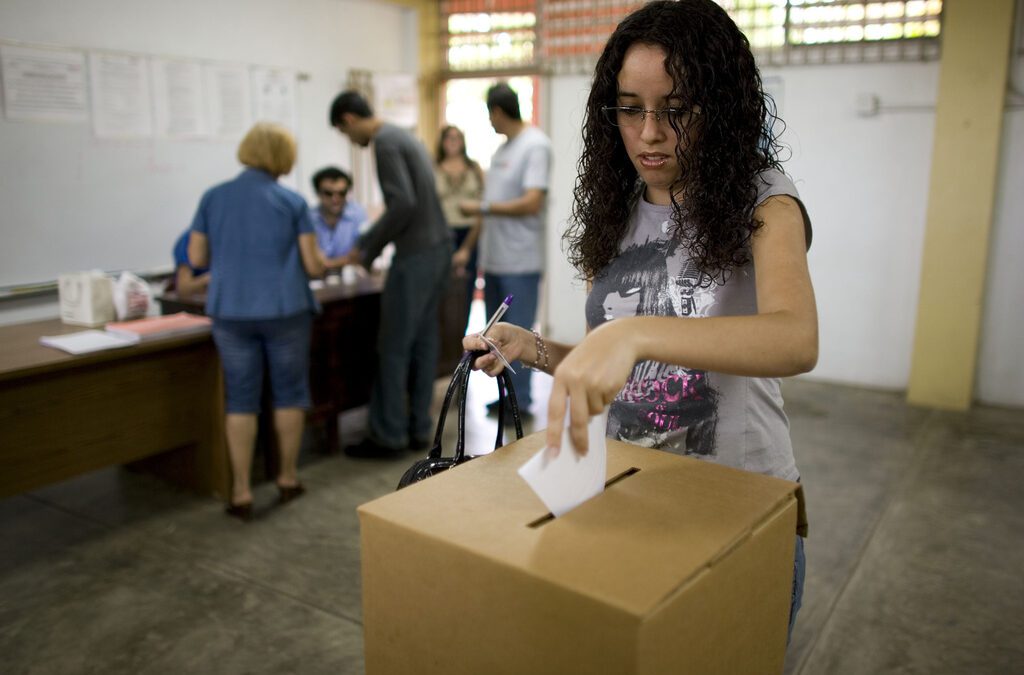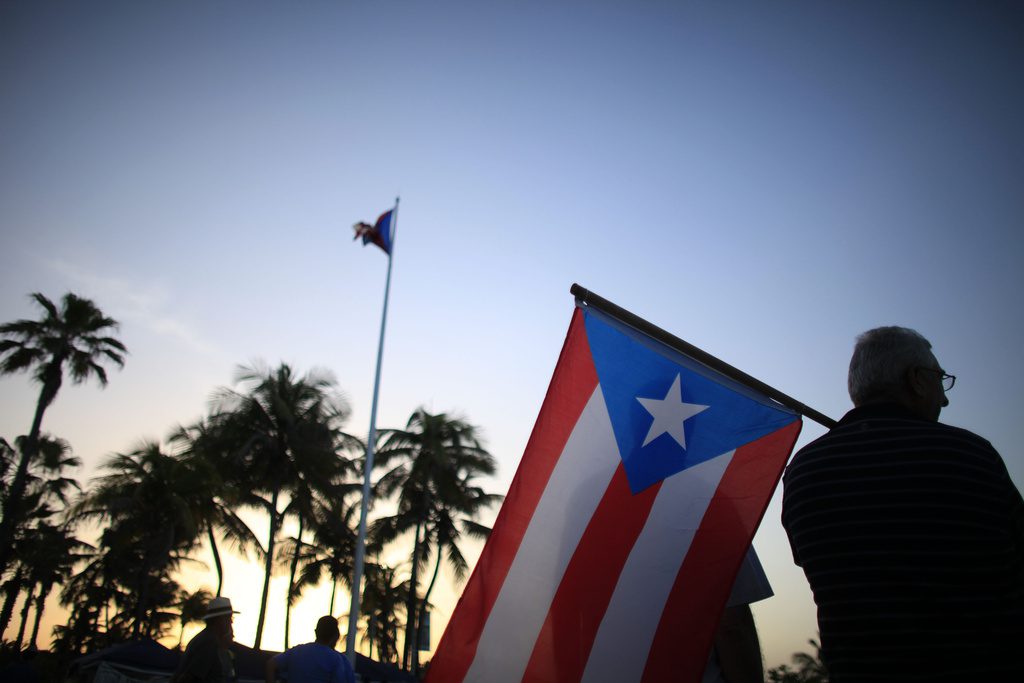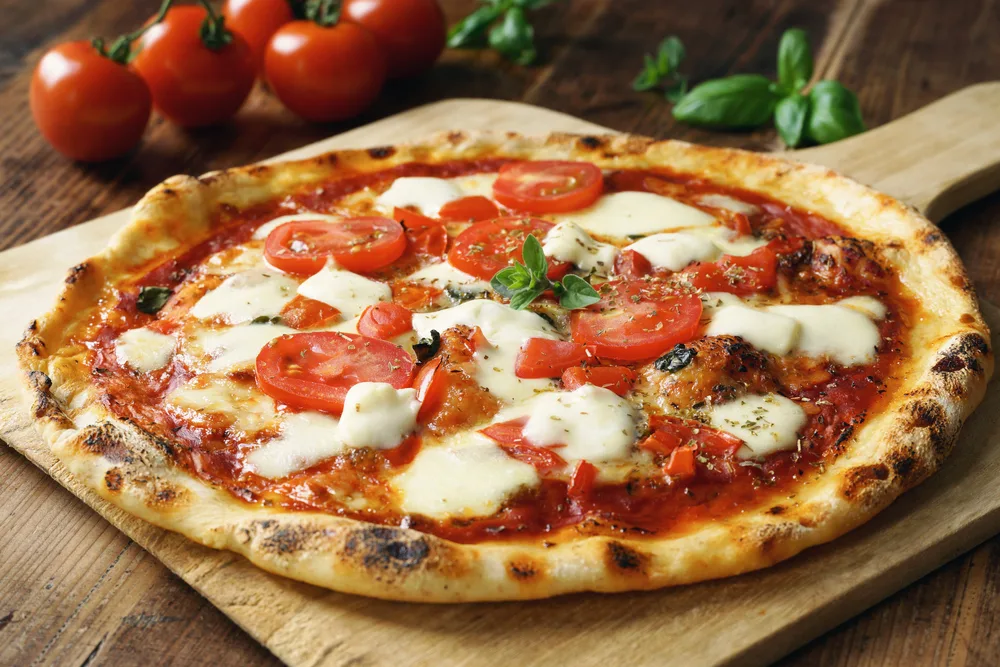
Image via Shutterstock
Global warming impacts our communities in ways that many of us don’t realize, including the dinner table, housing prices, and even seasonal allergies. Why doesn’t the state’s Republican leadership take action, and what can you do about it?
For those living in Florida, the signs are clear: bigger, more powerful storms every hurricane season, hotter temperatures year-round, and rising sea levels that cause flooding in many coastal communities.
Those are some of the most obvious signs of climate change that Floridians are experiencing right now. But according to Maria Revelles, director of Chispa, an environmental movement that reflects the values of Latinos and other communities of color, the list is long in the Sunshine State, the nation’s ground zero when it comes to climate change.
“Every year we see an explosion of the red tide that affects everyone that lives on the coast,” Revelles told Floricua. “This has a close relation with the number of fish that are dying, as the algae absorbs the oxygen in the water. Last year we also had an epidemic of manatees dying.”
But although many may not be aware, rising temperatures are affecting them in other ways. Here are a few examples:
- People with pollen allergies could experience more intense symptoms, and those with no allergies may start experiencing them; others may suffer from allergic asthma. This happens because as temperatures grow warmer, the period when plants release pollen is extended.
- Bacteria, viruses, and protozoa live in warmer waters, and disease-carrying insects live longer in warmer-than-average temperatures, heat waves and heavy rains, creating the “perfect storm” for the spread of diseases.
- A steady lowering of the total amount of ozone in the Earth’s atmosphere increases the risk of skin cancer.
- Air pollution, which increases as a result of climate change, raises the risk of suffering a heart attack by almost 5%. Pollutants also promote inflammation of the lungs, which can lead to inflammation of the heart.
Latinos Are Affected
Climate change even finds its way to your table. The carbon dioxide accumulating in the atmosphere is altering the composition of fruits and vegetables, which grow with more sugar and less calcium, protein, zinc and other important vitamins that make vegetables less nutritious.
“There are also fewer hours that people can work, not only in agriculture, which is a strong part of the state’s economy, but also in construction, landscaping, and all jobs that are carried out outdoors. In Florida, many of those workers are Latino or Hispanic,” added Revelles.
But rising temperatures are not just a matter of discomfort, scientists say, but literally of life or death. As the warm months grow hotter, researchers predict that by the middle of the 21st century, nearly 12,000 people in the US could die every year as a result of heat exposure.
RELATED: Yes, Climate Change Is Impacting Floridians Right Now
What Does It Have to Do With the Price of Housing?
Climate change also has an impact in ways that many don’t think about, Revelles said, like the connection between land shortage and the price of housing.
“Communities that were traditionally living on the shores are going to move to higher, drier ground. That shifts the housing market, which is already prohibitively high in Florida.”
Frustrating Inaction
According to Revelles, the current situation is the direct result of long-time neglect and inaction.
“For more than 20 years, Florida has been in denial and doing the bare minimum or nothing to take care of our environment,” she said. “If instead of depending on fossil fuels that are hurting our environment, we decided to go solar, the savings and the health benefits would be amazing, but we are going in the other direction. Sadly, at this point Florida is going backwards.”
She cites the need for strong legislation, such as that proposed every legislative term by Democratic Rep. Anna Eskamani (District 47), to commit to a carbon neutral plan.
“And it never even gets to committee, to have one simple discussion,” Revelles said.
RELATED: Climate Change Has ‘Irreversibly’ Impacted Florida’s Environment and Economy
She attributes this to the state’s Republican leadership, which she says has “hijacked the legislative session, so the issues that matter to Floridians are put on the back burner to favor a political agenda and special interests.”
Revelles is concerned that a lion’s share of the state budget is going to mitigate the problems created by rising sea levels, instead of going to address the problem, which is climate change, the two words Republican Gov. Ron DeSantis has yet to say.
“Sadly, the far right is entangled with big business and their mega donors,” Revelles said. “Listening to corporations, and passing legislation that favors special interests, has gotten us where we are right now.”
There Is a Lot That We Can Do!
But, said Revelles, hope springs eternal, because everyone as an individual, and as part of a community, can take action to heal our planet. Recycling, using eco-friendly detergents, driving less or carpooling to help reduce carbon pollution, cutting meat out of your diet or eating less meat, and installing solar panels are some ways to help. And there is another, equally powerful way:
“Vote for elected officials that talk about climate, that talk about solutions and act on them,” she said. “We Latinos are children of the Earth por excelencia, and we can be the community and the generation that stopped climate change.”
A message from Patagonia: Alaska may be far away, but the residents of Newtok face a threat familiar to many in Florida: water will erase their home. To keep their culture and community intact, the Yup’ik residents must relocate their entire village upriver while battling government inertia. This is a film about a village seeking justice in the face of climate disaster. You can watch the whole movie (for free!) here.
Politics

Inside Puerto Rico’s unique role in the US presidential race
Although residents of Puerto Rico can't vote for president in November, they could potentially still influence Electoral College calculations....



Biden makes 4 million more workers eligible for overtime pay
The Biden administration announced a new rule Tuesday to expand overtime pay for around 4 million lower-paid salaried employees nationwide. The...
Local News



Inside Puerto Rico’s unique role in the US presidential race
Although residents of Puerto Rico can't vote for president in November, they could potentially still influence Electoral College calculations....



Biden makes 4 million more workers eligible for overtime pay
The Biden administration announced a new rule Tuesday to expand overtime pay for around 4 million lower-paid salaried employees nationwide. The...





